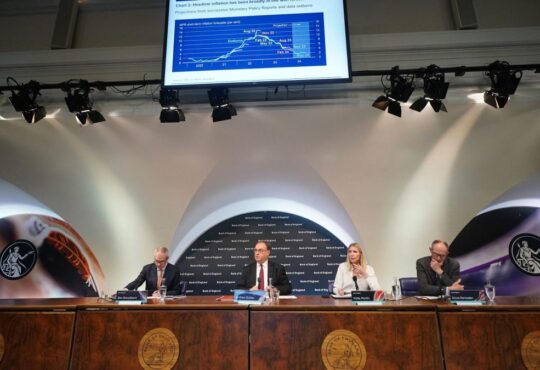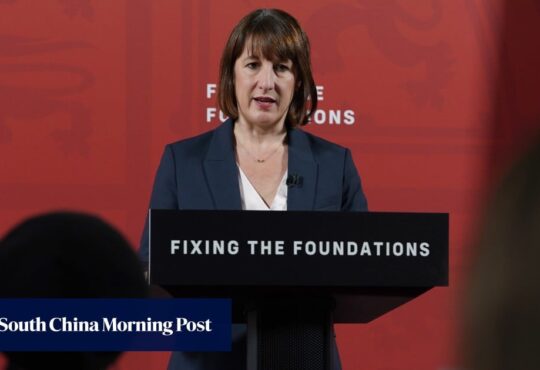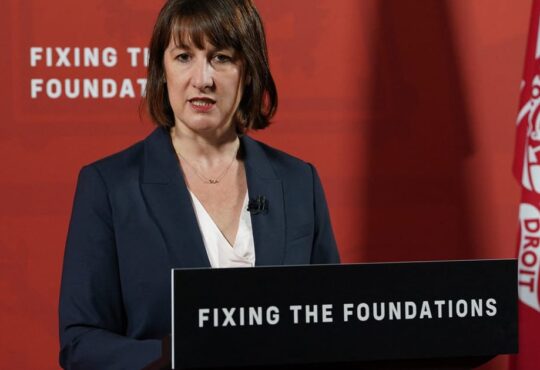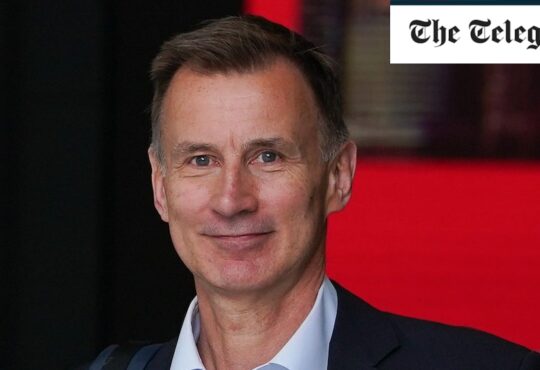
Rees-Mogg, who was leading a review of public bodies before his promotion to run the business department last September, also believes that money can be saved by reducing spending on quangos – including by scrapping some of them completely.
“Ultimately, yes, you want to look at whether there are quangos that can be wound up altogether, rather than simply saying, well, the budget is being removed. A lot of taxpayers money is spent because it’s there to be spent rather than because there is a real need for it.”
Last week, this newspaper revealed that UKRI, the government’s funding body for research and innovation that hands out £8 billion a year, has failed to achieve the “efficiencies” it was set up to oversee – instead ballooning by a fifth since its creation. The article caught Rees-Mogg’s eye, as UKRI was already in his sights.
“This is ripe for reform,” he says animatedly. “You want to make sure we’re handing out money properly. I thought there were significant savings to be had through UKRI in the grant-making that goes on there.”
The North East Somerset MP later texts examples of some of the grants provided by UKRI that led him to the view that it would be a sensible target for cuts. They include £483,621 towards a “UK-China transnational strategic partnership for immersive storytelling in museums and cultural institutions” and £655,735 for a project entitled ‘A Girls’ Eye-view: Girlhood on the Italian screen since the 1950s’.
“I do not have costs for ‘radical pedagogies in community ceramics’ or ‘love clothes: exploring post-consumptive narratives stored in contemporary British wardrobes’,” he adds of two further projects that caught his eye in a UKRI list.
He also believes that Rishi Sunak and Jeremy Hunt should be seeking to reduce costs by selling unused government buildings. During August, he visited a government-owned office building in Canary Wharf that was “almost completely empty” despite having space for “thousands of people to work there”.
“It was obviously disgraceful and this is expensive office space. I’m not completely convinced by the working-from-home culture anyway. But if you are working from home, you jolly well better get rid of your very expensive office space. You can’t have it both ways.”
Following his seven-week stint at the helm of BEIS, he is also concerned about the way in which the government is rushing towards the target of net zero carbon emissions by 2050. “I kept on going on about intelligent net zero. Not saying we’ll just junk it, but saying let’s do it in a sensible way that is thought through in its various aspects, rather than in a headline-grabbing way,” he says.
It is, for example, a “fair” question to ask whether the ban on the sale of new petrol cars by 2030, in favour of electric vehicles, is consistent with the Government’s push for growth and concerns about the cost of living. “We’re not there with batteries and you need to be certain that you’ve got cheap and efficient transport, which is dependent on cheap and efficient energy… Will we be ready by 2030 not to have petrol engines? That’s not a long time off.”
Rees-Mogg has championed fracking as a way to ease Britain off its reliance on energy imports, but refrains from criticising Rishi Sunak’s decision to reimpose the moratorium lifted by Truss’s government. While his view on the need for fracking appears to remain unchanged, he says: “My job is to support the new Prime Minister in the round. He’s got a very difficult job to do; he needs to put together a coalition of support around him. I’m very worried about the position the Tory party has got itself into – so I’m not going to criticise individual policies … I’m not going to criticise the Prime Minister. I think he needs leeway to get on with things.”
One area that Rees-Mogg does suggest could cause trouble for Sunak is the Retained EU Law Bill, which he believes is crucial to achieving economic growth, by freeing businesses and individuals from red tape originating in Brussels. Despite reports that the Prime Minister may have gone cold on the idea, he insists: “Rishi is fully committed to it,” having “made that absolutely clear in both his leadership campaigns.”
But, asked for his main piece of advice for the new Prime Minister, he brings up the legislation again, suggesting he may not be fully convinced of his commitment. “The rule bill… is such an opportunity for supply-side reforms and rapidly because of the deadline of the end of 2023 to take out bad regulations,” he says.






